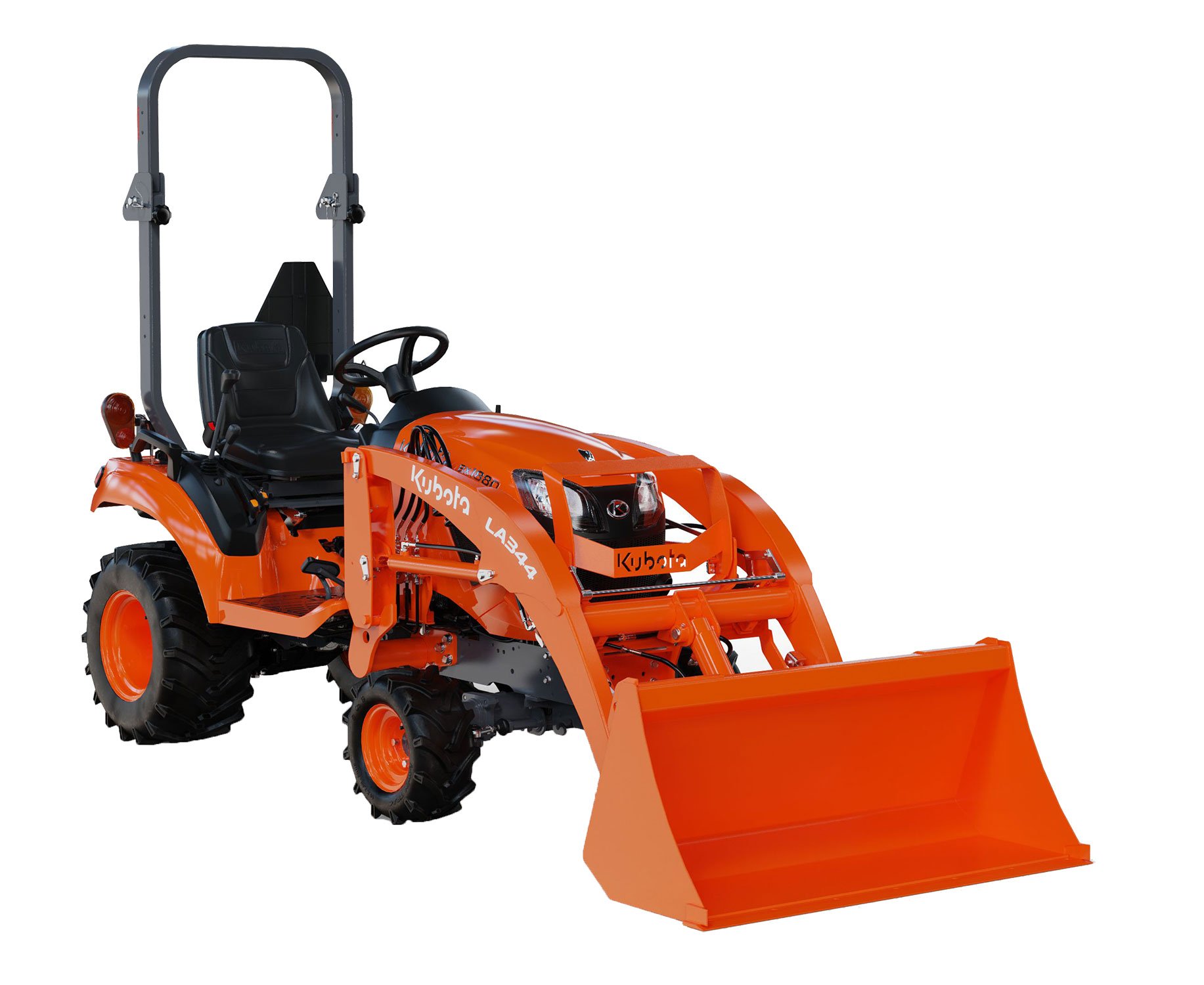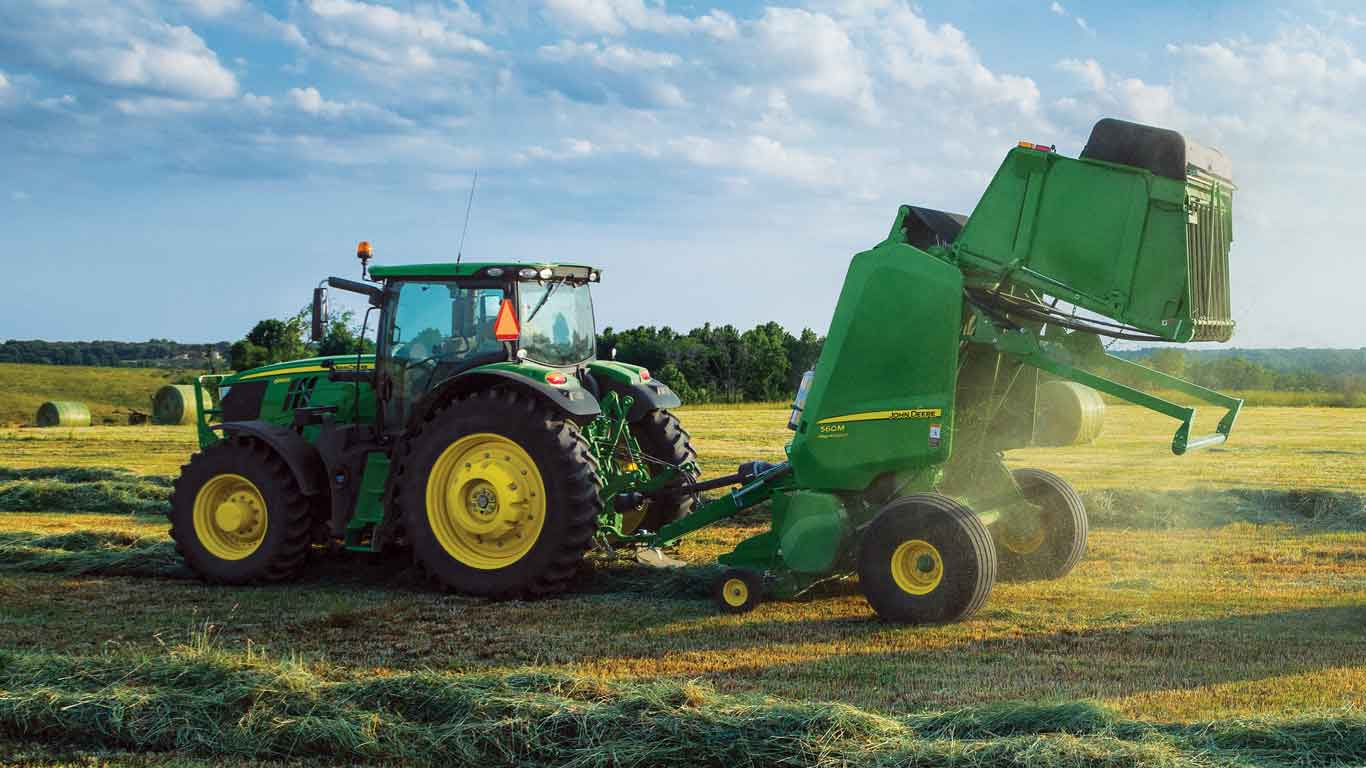You can finance a tractor for terms typically ranging from 1 to 5 years. Longer terms up to 10 years may be available for new, expensive models.
Financing a tractor is a critical decision for many farmers and businesses reliant on heavy machinery. The term of the financing can greatly affect both the monthly payments and the total cost of the tractor over time. Choosing the right financing term is a balance between manageable payments and overall financial outlay.
Lenders offer a variety of options to suit the diverse needs of their clients, considering factors such as the tractor’s use, depreciation rate, and the borrower’s credit history. Prospective buyers should thoroughly research and compare financing offers to secure terms that align with their financial strategies and ensure the sustainability of their agricultural operations.

Credit: www.smarterfinanceusa.com
The Basics Of Tractor Financing
Thinking about investing in a tractor? Understanding tractor financing is crucial. Many factors determine how long you can finance a tractor. These include the loan’s purpose, your credit, and the lender’s terms. Let’s dig into the essentials of tractor financing that every buyer should know.
Determining The Loan’s Purpose
Why are you buying a tractor? This question is vital. Are you aiming for increased productivity on your farm? Or, maybe you’re starting a new agricultural venture? Pinpointing the exact reason guides the loan’s duration and terms. Think about your goals. Short-term projects usually need shorter financing periods. Long-term farming goals might require more extended financing.
Assessing Your Financial Health
Reviewing your financial situation is key. Lenders look at your credit score, income, and debts. A healthy credit history means better loan terms. Your income stability ensures you can keep up with payments. To highlight key points:
- Credit Score: A higher score can lead to favorable interest rates.
- Debt-to-Income Ratio: This shows if you can manage additional debt.
- Down Payment: A large down payment might shorten the financing term and reduce interest rates.
Prepare a strong application. Present a clear financial picture to the lender. Then, secure the best possible terms for your tractor financing.
Loan Duration Options For Tractor Purchases
Exploring loan duration options is a key step when financing a tractor. Different terms can greatly affect both the total cost and the size of the payments. Understanding these options helps in making the decision that aligns best with financial goals and the intended use of the tractor.
Short-term Vs. Long-term Financing
Finding the right balance between the loan term and the monthly payments is crucial. Short-term loans usually last 1 to 5 years, making them a suitable choice for buyers who want to pay off their tractor quickly. These loans often have higher monthly payments, but they save money on interest over the loan’s life.
In contrast, long-term financing options can extend up to 10 years or more. This results in lower monthly payments, giving buyers more flexibility in their budget. However, it’s important to note that the total interest paid over time will be higher.
Impact Of Loan Term On Interest And Payments
The length of a loan significantly impacts the interest paid and the size of the monthly payments. A shorter loan term generally means less interest will accrue, whereas a longer loan term will add more interest to the total cost of the tractor.
| Loan Term | Monthly Payment | Total Interest Paid |
|---|---|---|
| 3 Years | Higher | Lower |
| 7 Years | Lower | Higher |
Here’s a simplified breakdown:
- Shorter loan terms raise the monthly payments but reduce the total interest.
- Longer loan terms ease the payment amount each month but increase total interest costs.
Choosing the loan term depends on individual financial circumstances and the use of the tractor. Balance the desire for a lower monthly payment against the overall cost with interest when selecting a loan term.
Factors Influencing Tractor Loan Terms
Finding the right financing terms is crucial when investing in farming equipment. Specific factors shape tractor loan terms, impacting how long you can finance your tractor. Understanding these factors ensures a plan that fits your budget and needs.
Credit Score And History
Your credit score leads the charge in influencing loan terms. A higher score often unlocks lower interest rates and better conditions. Lenders view a strong credit history as a sign of responsibility. It can lead to more favorable repayment periods.
Key details include:
- Past credit performance
- Loan repayment track record
- Overall creditworthiness
Down Payment Size
The size of your down payment directly affects loan duration. A larger down payment might shorten the finance period. It also reduces the loan’s total cost. Lenders might offer better rates for substantial down payments, lowering overall expenses.
Consider these critical points:
- Percentage of purchase price as down payment
- Impact on monthly installments
- Potential for negotiating loan terms
Tractor Age And Condition
The age of the tractor plays a strategic role in determining loan duration. Newer models with the latest technology may warrant longer financing terms due to higher purchase prices. Used tractors often incur shorter finance terms due to their depreciated value. Their condition can alter loan length as well.
Important aspects include:
| Tractor Age | Loan Term | Condition Factor |
|---|---|---|
| New | Longer Terms | Higher Value |
| Used | Shorter Terms | Lower Value |
Analyze the tractor’s condition by assessing:
- Maintenance history
- Wear and tear levels
- Operational efficiency

Credit: www.kubotausa.com
Understanding Interest Rates
When exploring tractor financing options, understanding interest rates is crucial. These rates dictate your monthly payments. They also influence the total amount you’ll pay over the loan’s lifespan. Grasping the difference between fixed and variable interest rates can lead to smarter financial decisions. Let’s delve into how these rates work and their impact on financing periods.
Fixed Vs. Variable Rates
Fixed interest rates keep your payments the same through the loan term. They are predictable and stable. Variable interest rates, on the other hand, can fluctuate with market trends.
- Fixed Rates:
- Monthly payments stay the same
- Easier to budget long-term
- Variable Rates:
- Payments can increase or decrease
- Potential for lower initial rates
How Rates Affect Financing Periods
| Interest Rate Type | Shorter Financing Period | Longer Financing Period |
|---|---|---|
| Fixed | Higher monthly payments | Lower monthly payments |
| Variable | Initial cost varies | Uncertain future costs |
The chosen interest rate affects how long you can finance a tractor. With fixed rates, a longer period means smaller payments but more interest over time. With variable rates, the initial lower payment might appeal, but it can lead to higher payments if rates go up. Always consider the total cost and the risk you’re willing to take on.
Pros And Cons Of Extended Financing
Finding the balance between manageable monthly costs and the total investment over time is pivotal. This balance affects long-term financial planning. Extended financing offers both advantages and drawbacks. These points will steer you in understanding if stretching your tractor financing is the right move.
Lower Monthly PaymentsLower Monthly Payments
Lower payments each month make the tractor seem more affordable on a short-term basis.
- Easier budget management
- Better cash flow
- Free up capital for other investments
Total Cost Over Time
The long-term perspective on tractor financing is crucial.
| Term Length | Interest Rate | Total Interest Paid |
|---|---|---|
| 5 years | 3% | $X,XXX.XX |
| 10 years | 3% | $X,XXX.XX |
Longer financing terms typically lead to higher overall costs due to interest.
- Increased total payment
- Potential for higher interest rates
- More interest paid over the life of the loan

Credit: www.deere.com
Final Considerations Before Signing A Tractor Loan
Before you put pen to paper on a tractor loan, stop and consider a few more things. A tractor can be a big investment. You want to make sure you get the best deal. The loan terms should match your needs. Look at loan flexibility and any prepayment penalties. Then, tally up insurance and extra expenses. Here’s what you need to know.
Loan Flexibility And Prepayment Penalties
Loan flexibility means how much you can change your loan. Can you pay more each month? Maybe pay it off early? Some loans are strict. They don’t let you pay extra without a fee. This is where prepayment penalties come in. These are fees for paying your loan off early.
- Ask if your loan has flexibility: Can you adjust your monthly payment?
- Check for prepayment penalties: These can add to the cost if you try to pay off early.
Your budget could change. You might want to clear debt sooner. Pick a loan that lets you do this without losing money.
Insurance And Extra Costs
Tractors need protection too. That’s where insurance comes in. You might face damage, theft, or accidents. Insurance can cover these. It’s usually needed for a loan. But don’t forget other costs too.
- Check what insurance covers: Be sure it fits what you need.
- Remember extra costs: Things like maintenance or repairs. These are part of owning a tractor.
Costs can add up. Make sure your budget includes these extras. It helps avoid surprises later on.
Frequently Asked Questions On How Long Can You Finance A Tractor
Is It Hard To Get Financed For A Tractor?
Getting financed for a tractor can vary in difficulty depending on your credit history and the lender’s terms. Good credit generally makes the process easier. Always compare offers for the best deal.
What Is The Average Term Of A Tractor Loan?
The average term for a tractor loan typically ranges from 1 to 5 years.
What Kind Of Loan Do I Need To Buy A Tractor?
To purchase a tractor, consider applying for an equipment loan or an agricultural loan specifically designed for farm machinery.
What Credit Score Do You Need For John Deere Financial?
For John Deere Financial, you generally need a credit score of 680 or higher. Approval depends on credit history and other factors.
What Affects Tractor Financing Terms?
Tractor financing terms can be influenced by factors such as credit score, down payment size, the brand and model of the tractor, and overall financial health of the borrower.
Conclusion
Deciding on the length of your tractor financing is crucial. It balances monthly costs with total interest. Research lenders, consider your budget, and assess your long-term financial plans. Remember: the right financing term ensures your tractor is an asset, not a burden.
Choose wisely for your farm’s prosperity.











